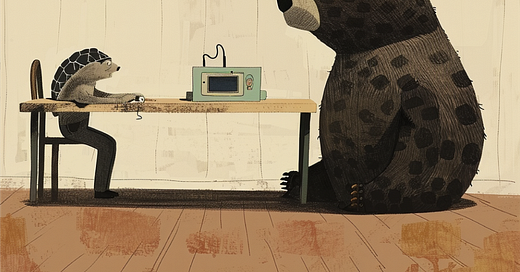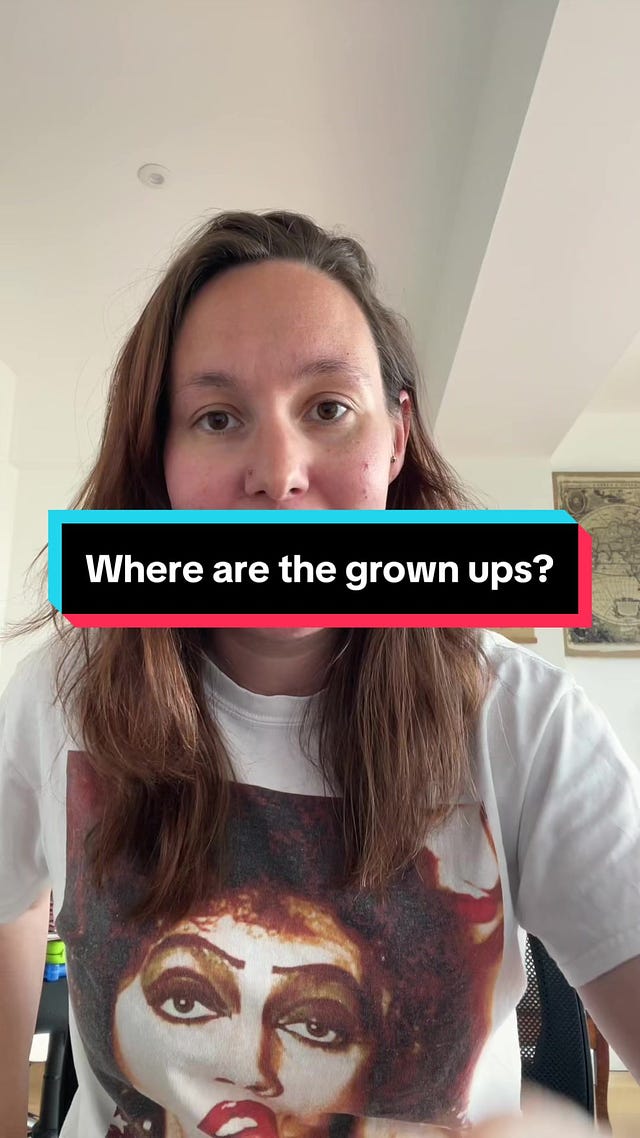Will a personality test cost you your dream job?
ALSO: brand new insight into the way to build team communication
Little did I know what I was starting when I posted this link on LinkedIn, about Myers-Briggs Type Indicator (MBTI) being little more than workplace horoscopes that it was going to cause such a scene.
A number of coaches came out in force declaring that MBTI is a lovely tool that is there to help: ‘What harm can there be in a little self reflection?’
One coach suggested they wanted to sit me down and do a thorough Myers-Briggs analysis on me, they were certain that I’d learn something. I’m flattered with this misdiagnosis, I’m so long in the tooth that I’ve done MBTI several times, plus some of the quirky copycat products that have chased the same lucrative market.
The two issues with Myers-Briggs are that it isn’t rooted in much substance, and additionally that when we receive anything of this nature we can be so mesmerised by the personalised delivery of it that we discard our concerns.
The Myers-Briggs test itself was created by a mother-daughter team before the Second World War with very limited scientific input. It found its success by suggesting the notion that everyone was good at something and that the tool was the way to find their hidden strengths. There is no doubt whatsoever that despite the lack of evidence to support much of what MBTI advises people recipients of the help often love the insight it gives them.
To some extent this is the Barnum Effect, which you might have seen Derren Brown talking about, The Barnum Effect describes the phenomenon where we ascribe high accuracy to statements supposedly tailored to us, largely because we’re so charmed with seemingly attentive feedback - even when the comments are highly generalised.
Barnum Effect statements might say something like: ‘You’re very self critical and you struggle to get stuff done for fear of mediocrity’, ‘People might not understand about you that while at times you can be extroverted and sociable, at other times you’re capable of feeling introverted, wary and reserved’. Everyone sees something of themselves in these statements, and so it is with Myers-Briggs reports. The truth is of these statements is that when we read our report, we don't read adjacent reports of other people. Whatever they tell us feels personal.
And all that is fine if we keep those reservations in mind when we take MBTI - say in the case of coaching - but there’s a growing trend of these psychometric tests being used on workers and job candidates as part of the process of team building and recruiting. It’s been estimated that four fifths of US firms use personality tests to vet candidates for senior roles.
These tools extend beyond the MBTI universe, sprinkling their own proprietary secret sauce along the way. With that secrecy comes the opacity of an algorithm. We’re left to wonder how the computer made a decision on us. A few years ago I did a podcast episode that allowed me to take one recruitment test. It was an eye-opening experience.
Beyond the standard MBTI framework I immediately recognised some of the research that was informing the questions I was being posed. The ‘Reading the Mind in the Eyes’ test is a proven way to assess teamwork; the better able someone is to read what a colleague is thinking from their face, the more effectively they are to collaborate with that person. (Here’s a whole podcast on that).
That research had been lifted by the candidate screening tool I tried and I found myself trying to guess what someone was thinking by looking at them. Except the app replaced a photograph with a Lego character. I’ll confess that working out what a Lego woman was mistily reflecting on is pretty tricky. Overall I ended up scoring a low mark on the assessment. I’m sure I would have been a ‘no hire’. Sour grapes then? Not really. I wasn’t bothered because the app itself was so desperately unimpressive. There’s one thing getting a scolding from a Nobel Laureate and there’s another being heckled by someone whose trousers are falling down.
But in each of these tools, from the white bread MBTI to the dozens of new AI powered competitors that are springing up, there is distortion taking place. Someone somewhere has made value judgment decisions to evaluate candidates based on their answers. It turns out that those choices (yes, often articulated to us as algorithms) are often full of bias. In the US firms like CVS and Best Buy had to pay settlements after it was found that their personality tests were in fact biased on race and gender.
By all means use these tools, but understand that they are merely suggesting tendencies to you. If a job asks you to perform a personality test I think you are perfectly in your rights to give the answers that you think the system wants rather than feeling the need to reveal the inner workings of your mind.
Want to improve your culture & connection? Company offsite/away days are shown to strongly boost communication (by over 100% in remote first companies). Interestingly in this reseach adding a ‘taxi roulette’ (of people being put in taxi shares with random colleagues) also had a huge uplift in communication. The uplift in communication/connection hadn’t diminished 4 months after the offsite)
If you’re interested in that - and other insight on how to make fully remote work thrive - this presentation from the Running Remote conference last month is worth checking out. The presenter Raj Choudhury (who has been on the podcast in the past) gives evidence of more individual productivity of WFH workers and what determines remote success: he reiterates his belief that teams should be autonomous to work out how to spend 25% of their team time together
I got a strong response to the last newsletter about the generational changes that have happened in society in the last 10 years. Some people have asked me ‘do you have examples of what succeeds in building team connection?’ There was one example in one of the articles I shared last week. If you want social connection you need to create moments to connect. I know the challenge for some people is that they perceive this as ‘forced fun’ but it could easily be a team offsite (as mentioned above) filled with debate about how you want to work going forwards that spills into a relaxed discussion over lunch
The author of the great WSJ article about loneliness at work posted it as a Twitter thread. And it’s equally brilliant:
Someone who contributed to the article took issue with the suggestion that it said remote work was causing loneliness (which the post above shows isn’t the argument, there was as much loneliness from in person work as from remote)
Do you feel like a grown-up? LinkedIn feels like a space where everyone is pretending to be a grown up but do we feel like that inside? The brilliant Elspeth Kirkman has some research to help us. She asked people 'in the company of other adults do you feel like a grown up?'
On a 5 point scale most people answered that they scored 2 (ie slightly more than a child) but they perceived other adults to be a 4.
Other people we know we score as a 3 (ie more grown up than us, but not a Full-Blown Adult
I went on the Company Doctor podcast and talked resilience if you’ve not heard some of the Fortitude chat before
Do you have much fun lined up for the summer? Get your dancing shoes on… I love this paper that finds that the best treatment for depression is dancing. (Here’s an article on it) It is way more effective than anti-depressants
If you’re involved in hiring then this Fred Asquith TikTok describing one candidate’s interview experience is a grim tale worth watching. Critically this isn’t a horror story, this is the normal process that the vast majority of candidates will experience at some firms:
 Tiktok failed to load.
Tiktok failed to load.Enable 3rd party cookies or use another browser












My second-ever job out of university required me to take a 'personality test' (not sure if it was MBTI exactly but it had a lot in common) as part of the screening - this was in 1999. The final hurdle in the process was an interview with the CEO, during which he discussed my results with me. I still think that what I said to him then holds true now: the results of these tests are strongly influenced by the context a person is operating in when they're taking them - not just in the test room, but in their day-to-day outside of that. A large chunk of people don't fall into that white-hot self-referential group that are broadly the same whatever they do, but are adaptable to what their team or colleagues need (within limits).
(Mine said something about me having a problem with authority. At the time, I was under a completely toxic supervisor who policed every minute of my working day, micro-managed my work and took every chance she could to reprimand me in a hyper-critical rather than constructive fashion. HELL YES I had a problem with authority. And *everyone* who knows me now would laugh themselves silly to hear me described that way.)
@Bruce Daisley having sent a reply I would really be interested to hear from the supporters of tests/MBTI as to whether the tests accurately ‘catch’ unsavoury people (I gave an example of a former boss who would belch in my face, touch colleagues inappropriately and make demeaning/sexualised comments). From memory, he took one of those tests and it didn’t mention any of these traits. I’d much rather know about what he as actually like instead of how ‘extroverted’ he was.
I wonder if anyone using it for dating has a tale to tell!